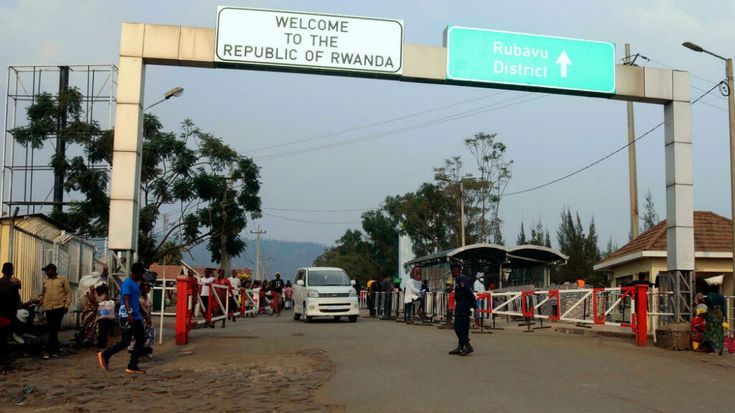How safe is border crossing between Rwanda and Uganda?
The border crossing between Rwanda and Uganda has historically been safe for tourists, but in recent years, there have been periods of tension between the two countries that have affected the ease of crossing. While tourists are generally still allowed to cross, it’s important to stay informed about the latest developments, as political and diplomatic relations between Rwanda and Uganda can impact border security, wait times, and regulations. Here’s an updated assessment of the situation and key points for travelers:
1. Political Relations
Rwanda and Uganda have experienced diplomatic tensions in recent years, particularly between 2018 and 2020. These tensions led to the closure of the Gatuna/Katuna border post, the main crossing between the two countries, for several months. Though relations have improved, and the border reopened in 2022, the political situation can still fluctuate.
- Current Status: As of 2023, border crossings between the two countries, particularly at the main Gatuna/Katuna and Kyanika posts, are open to travelers. However, it is always recommended to check for updates before your trip, as the situation could change.
- Travel Advisories: Tourists should regularly monitor travel advisories issued by their own governments or international bodies regarding travel between Uganda and Rwanda.
2. Border Crossing Points
There are three major border crossing points between Uganda and Rwanda:
- Gatuna/Katuna Border: The most popular and direct route for travelers, especially those traveling between Kigali (Rwanda’s capital) and Kampala (Uganda’s capital).
- Kyanika: Located near Kisoro, this is the primary border crossing for travelers heading to Mgahinga Gorilla National Park in Uganda or Volcanoes National Park in Rwanda.
- Mirama Hills: A less commonly used crossing point, but it can be an alternative if there are long queues at other crossings.
3. Security and Safety
Generally, the border crossings themselves are safe for tourists. Both countries prioritize tourism and make efforts to ensure that travelers are not affected by political tensions.
- Security Checks: Expect thorough but routine security checks at the border posts. These may include passport checks, visa verification, and luggage searches. The process can take some time depending on how busy the border is.
- Bribery and Corruption: While Uganda and Rwanda are generally safe for tourists, petty corruption at the borders can occur. Stay vigilant, be polite, and avoid offering bribes.
- Road Safety: Road conditions on both sides of the border can vary, with some sections being bumpy or less well-maintained. Hiring a trusted driver or using reliable transportation options is recommended.
4. Documents Required
To cross the border between Rwanda and Uganda, you will need the following:
- Passport: A valid passport with at least six months’ validity.
- Visa: Both Uganda and Rwanda require visas for many nationalities. However, tourists can take advantage of the East African Tourist Visa, which allows entry to Rwanda, Uganda, and Kenya on a single visa for $100 USD.
- Yellow Fever Certificate: Proof of vaccination for yellow fever is required when crossing borders between these countries.
5. COVID-19 Considerations
The COVID-19 pandemic has added new protocols for international travel, including border crossings between Uganda and Rwanda.
- Vaccination: Both countries may require proof of COVID-19 vaccination or a negative PCR test, depending on current regulations. Always check the latest requirements before your trip.
- Health Screenings: You may be subject to temperature checks or additional health screenings at the border, depending on the situation at the time of travel.
6. Border Crossing Tips
To ensure a smooth border crossing between Rwanda and Uganda, follow these tips:
- Start Early: Border posts can get crowded, particularly the Gatuna/Katuna crossing. Starting your journey early can help you avoid long queues.
- Carry Cash: It’s helpful to have cash in local currency (Ugandan Shillings or Rwandan Francs) for any small expenses, though major transactions are usually handled with international currency like US dollars.
- Stay Updated: Regularly check with local contacts, travel agents, or tour operators for the latest information on border conditions and any possible disruptions.
7. Alternatives to Border Crossing by Road
If you prefer to avoid road border crossings due to concerns about security or delays, you can opt to fly between Rwanda and Uganda. Several airlines offer flights between Kigali and Entebbe International Airport, the main international airport in Uganda. While more expensive, flying can save time and potentially avoid the uncertainty of road crossings.
8. Tourist Experience
Despite the occasional political tensions, most tourists crossing the Rwanda-Uganda border report a smooth and straightforward experience. Tourism is vital to both economies, and authorities are generally hospitable to visitors, especially those engaged in popular activities like gorilla trekking in Uganda’s Bwindi Impenetrable Forest or Rwanda’s Volcanoes National Park.
Conclusion
Crossing the border between Rwanda and Uganda is generally safe for tourists, though it’s important to stay informed about current political conditions and travel advisories. By preparing the necessary documentation, arriving early, and choosing the best crossing point for your itinerary, you can have a smooth and enjoyable experience. Always keep an eye on evolving situations, especially regarding health protocols or any potential political changes, to ensure a safe journey.




